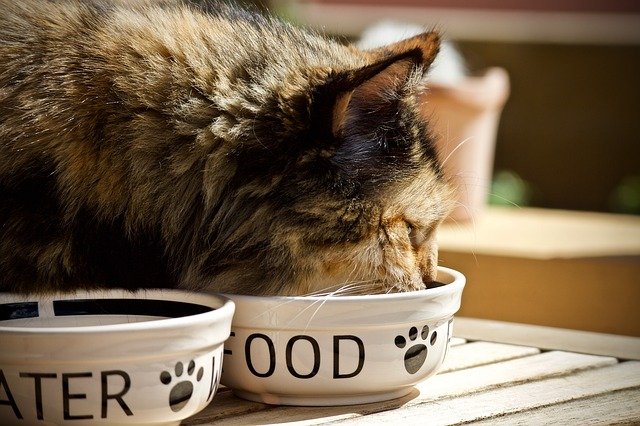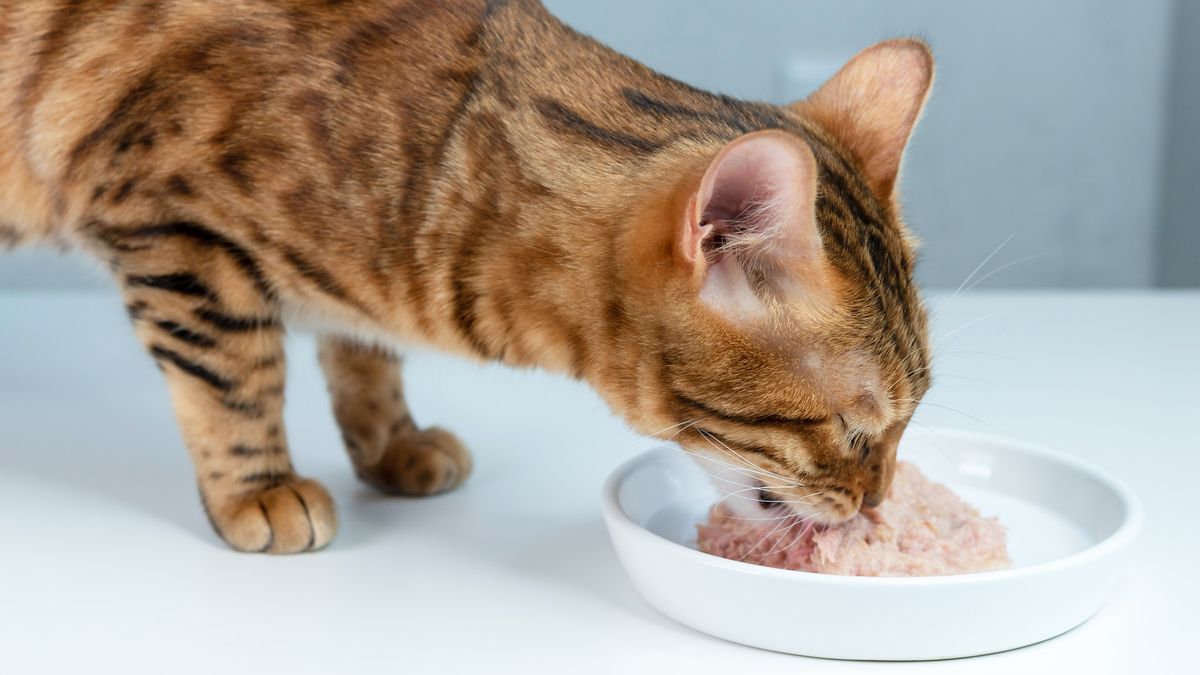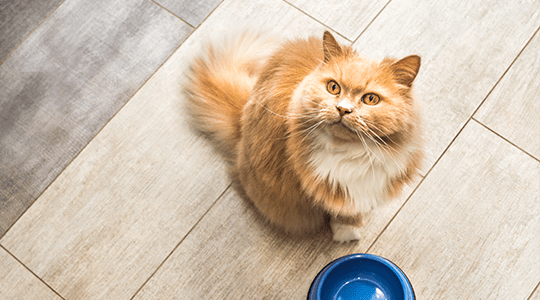Crafting a Balanced Diet: Cat Food Essentials
Anúncios
Ensuring your cat gets a healthy, balanced diet is important for his overall health. Just like humans, cats need several important nutrients to stay healthy. We’ll cover the most important parts of preparing a balanced meal for your cat, focusing on the basics of cat food to keep your pet healthy and happy.
1. Protein Energy
Cats are obligate eaters, meaning they get most of their food from meat. Protein is an important part of a cat’s diet because it helps with muscle growth, immune system function, and your cat’s overall energy levels. When choosing cat food, choose a brand that gets most of its nutrients from good sources, such as chicken, turkey, or fish. This ensures that your cat gets all the amino acids he needs to stay healthy.
2. Healthy Fats for Hair and Body
Cats need a lot of fat and protein in their diet. Fat is necessary to keep your coat shiny, your skin healthy and to help your body do many other things. Omega-3 and Omega-6 fatty acids are commonly found in fish oil and chicken oil, so look for cat food that contains them. These fats not only make your cat look better but also help keep his brain and joints healthy.
3. Few Carbohydrates
Cats don’t need to eat carbohydrates, but small amounts can help them feel full and give them energy. Choose cat food that contains carbohydrates that are easy for your cat to digest, such as sweet potatoes or rice. But it’s important to keep a balance because too many carbs can make you gain weight and lead to other health problems.
4. Important Minerals and Vitamins
Felines need several different vitamins and minerals to stay healthy. Vitamin A is important for vision, vitamin D is good for bones, and minerals such as calcium and phosphorus help keep bones and teeth healthy. Choosing a “complete and balanced” cat food will ensure that your cat gets the right amount of vitamins and minerals he needs.
5. Water is Important
Cats often don’t drink enough water, which can dehydrate them and lead to urinary tract problems. Wet cat food contains more water than dry cat food, so give it to cats. Also, make sure to give them clean water in a bowl to keep them hydrated.
6. Why Regular Inspections are Important?
In addition to a healthy diet, taking your cat to the vet for regular checkups is an important way to monitor his health. Your vet can give you good advice about what your cat should eat, based on its age, weight, and any health problems. Additionally, these tests help detect problems early so that immediate treatment and action can be taken.
7. Adjust the Diet to Different Stages of Life
As cats get older, they need different foods. Cats of different ages and stages have different needs, so it is important to ensure their diet meets these needs. There are many brands of cat food made specifically for each stage of a cat’s life. These foods can meet the needs of growing kittens, keep adult cats healthy, and help older cats solve the problems they face.
8. Avoid Common Mistakes
It’s important to know what to feed your cat, but it’s just as important to know what not to feed your cat. Cats should not eat chocolate, onions, garlic, and other things that humans eat. Also, make sure you don’t eat too many snacks and don’t let them disrupt your healthy diet. Don’t overfeed your cat, as excess weight can lead to health problems such as diabetes and joint pain.
9. Getting Used to a New Diet
If you want to change what your cat eats, do it slowly. Sudden changes can upset their stomach, leading to problems such as diarrhea or vomiting. Start by adding small amounts of the new food to their current diet. Increase the dosage slowly over a few days. This slow change gives your cat’s digestive system time to adjust.
10. Taking Care of Food Sensitivities
Just like humans, cats can have sensitivities or allergies to certain foods. Watch for signs such as persistent itching, stomach problems, or behavioral changes. If you think your cat has a food allergy, contact your vet to find out what’s causing your cat’s allergies and make changes to his diet if necessary.
Conclusion
Creating healthy food for your cat is an ongoing process that requires you to observe, change, and make wise choices. Providing your cat with high-quality food, regular vet visits, and understanding his needs are all ways you can improve his health and happiness. Remember, a well-fed cat is a happy, healthy friend who is willing to share many happy moments with you.
FAQs
1. How much cat food should I give him?
The right amount of food for a cat depends on its age, weight and activity level. First, check the feeding instructions on the cat food package. Depending on your cat’s specific needs and your veterinarian’s recommendations, some changes may be necessary.
2. Can I cook for my cat at home?
Some cat owners cook their own meals, but it is important to ensure that it meets all of their cat’s nutritional needs. Talk to your vet about developing a balanced diet that contains all the proteins, fats, vitamins and minerals your pet needs. To ensure you don’t miss out on nutrients, home-cooked meals should be carefully planned.
3. How do I know if my cat doesn’t like certain foods?
Cats with food allergies may experience itchy skin, stomach problems, and behavioral changes. If you think your pet has a food problem, contact your veterinarian. They may recommend an elimination diet to find the exact food causing the problem.
4. Is dry cat food better than wet cat food?
Cats can eat both wet and dry food as part of a healthy diet. Wet cat food contains more water than dry cat food, which keeps cats hydrated. Dry food, on the other hand, can help keep your teeth healthy. Some cat owners choose to combine the two to provide variety and meet their cats’ different nutritional needs.
5. Can I give my cat treats?
Yes, you can feed small amounts. Choose cat food that suits your cat’s healthy diet and stay away from cat food that contains too many fillers or additives. Keep track of how many calories you consume from snacks to avoid overeating.
6. How often should I take my cat to the vet for a diet check?
Regular veterinary examinations are important to monitor your cat’s overall health, including diet. Follow your veterinarian’s recommendations for health exams and be sure to discuss any concerns or questions about your cat’s diet during these appointments.
malik
Publicado em: 25/12/2023




